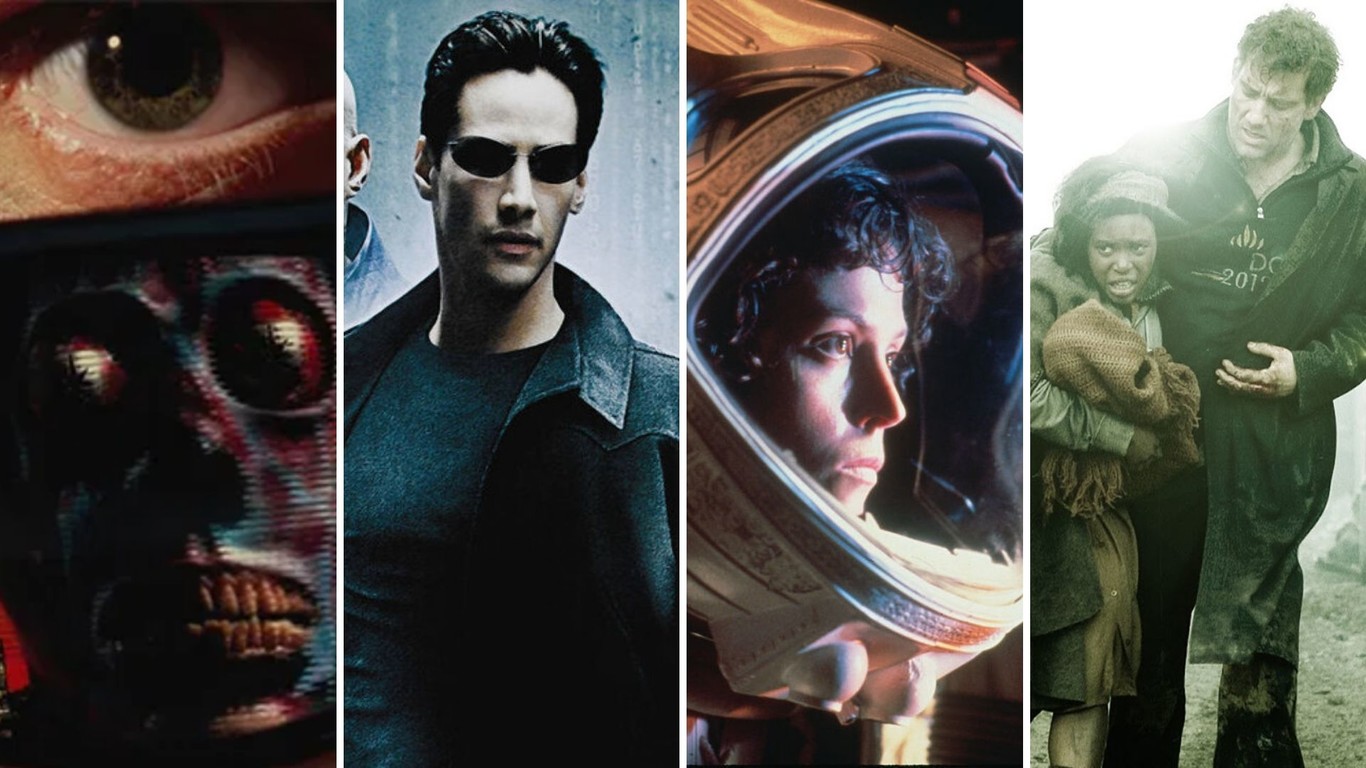
It is a real challenge to limit to a handful of films a film genre that has existed since the very birth of cinema, and that also has thematic tentacles that extend to other media, with which it has been fed back based on arguments, creatures, and ideas. For example, the science fiction cinema of the 1950s, with its paranoia and its Martian invasions, is inconceivable without the genre literature that was produced at the same time.
Sticking with twenty science-fiction films is a task destined to fail and guaranteed absences. To begin with, it is not even easy to delimit the limits of the genre. We consider it like this: science fiction is that branch of fantastic cinema where, within the logic of the story, there is a scientific justification for what happens. It is important to take into account the “logic of the story” because there are films with a very lax concept of verisimilitude.
For example, some throw their hands up for considering ‘Star Wars’ as science fiction, given that what happens has no scientific explanation. But in that world, there is a technology that allows satellites to be built that destroy worlds: that satellite has not been built with magic, but with science. To that, we have to add that ‘Star Wars’ draws on the codes of pulp genre and space opera (large opposing sides, interplanetary travel, ships, aliens). They are definitions subject to discussion, but this is ours and the one we are going to use here.
In the same way, there will be those who may say that ‘Alien’ or ‘The Thing’ are horror films, and they are right. But that’s like saying ‘Back to the Future’ is a sitcom, ‘Mad Max’ is action, and ‘Children of Men’ is a social drama. Gender compartments are not watertight, contamination is possible (and desirable), and they are still labels to make things and conversations easier for us.
So let yourself go. Not even the list we offer below is full of “perfect” films: we have preferred to favor variety and touch on all branches of the genre, from space battles to social satire. These are the 23 best science fiction movies.
Metropolis (1927)
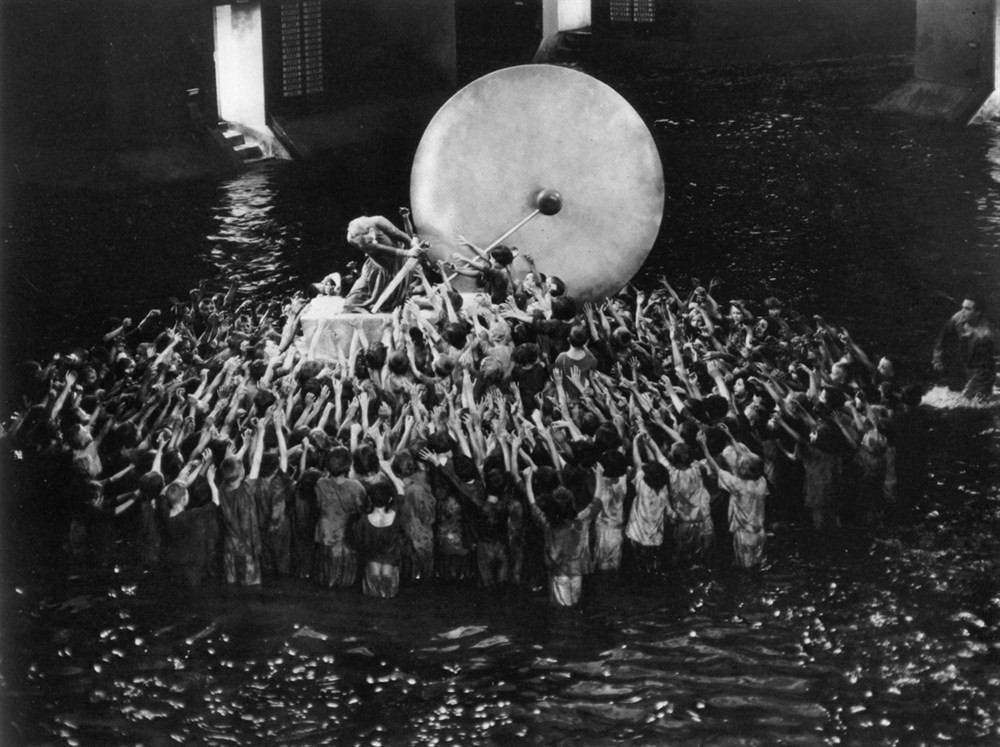
The first total classic of the genre, unmatched for many years, is this marvel by Fritz Lang that is still enormous today due to the daring of its concepts, its political message, and its technical boasts. Some of his visual pieces, such as the robotic Maria or the machines on which men work, perfectly symbolize the genre in those naive times, as well as the daring of its first visionaries, who were inventing on the fly a form of narrate. A well-deserved absolute classic and a top-of-the-medium in any genre.
If you liked it, also try: Silent science fiction is not as abundant as other genres, but if you want to trace its origins you have a must with Meliès and his pioneering shorts of special effects, such as ‘Journey to the Moon’.
Where to see it: On Filmin.
Forbidden Planet (1956)
When choosing a film from the rich science fiction of the fifties, we chose this sui-generis adaptation of Shakespeare’s ‘The Tempest’. A perfect example of how the genre cinema of the time had matured enough to offer us the most superficial and cheap (Robby the robot, Anne Francis’ outfits, Leslie Nielsen!) to much more complex elements, such as the sensational setting and effects or the wonderful monsters of id. These are what have turned the film into a classic, anticipating works with a similar plot such as ‘Solaris’, but without ever losing sight of its essential proposal of a film of galactic adventures and crazy technology.
If you liked it, also try: The science fiction of the fifties is unfathomable, although its ambition and means often do not have the stature of ‘Forbidden Planet’. Among its many classics, check out ‘Invasion of the Body Snatchers’, ‘Invaders from Mars’, ‘This Island Earth’, ‘Ultimatum to Earth’ or ‘The Incredible Shrinking Man’, among many others.
Where to see it: On iTunes .
2001: A Space Odyssey (1968)
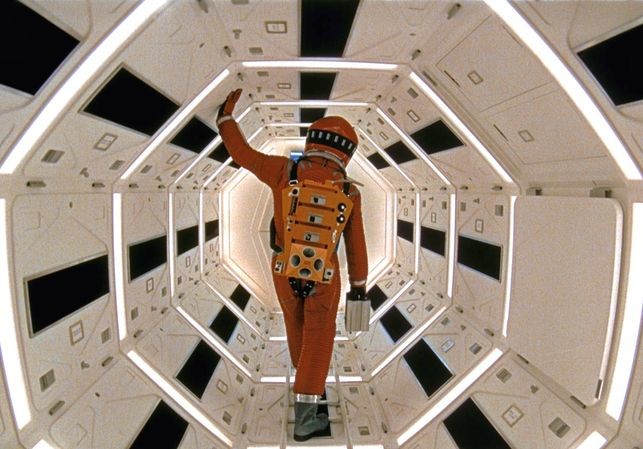
For many, the definitive science fiction film and, of course, it is one of the most ambitious and creatively perfect of all time. Also, despite its reputation for being inaccessible and excessively intellectual, one of the most imitated and influential. Kubrick achieved, this with his famous ellipsis that links primitive animal fury and human intellect conquering space, adorning it with the plot of an on-board computer that decides to impose its will on humans (an argument that today we continue to see repeated time and time) again) and with special effects that remain as perfect today as in their day, signing an essential piece to understand the genre.
If you liked it, also try: Kubrick touched all genres, but if you want more of his science fiction, go to the imperfect but very iconic ‘A Clockwork Orange’. And in the key of a hilarious apocalyptic dystopia, to ‘Red telephone, shall we fly to Moscow?’. And if you want to feel the inclusion of ‘2001’, you have a must with Christopher Nolan’s recent ‘ Interstellar ‘.
Where to see it: On Rakuten .
Solaris (1972)
Along with Kubrick’s ‘2001’, the perfect standard bearer of science fiction that is furthest from commercial parameters. Like the essential novel by Stanislaw Lem on which it is based, it tells how a psychologist enters a space station to find out what has happened to the crew under the omnipresent influence of a planet, Solaris, which visualizes the trauma and pain of those who They orbit it. As slow and meditative as it is hypnotic, ‘ Solaris ‘ uses the tools of science fiction to raise questions about the power of the mind and the subjective, and the limits of life and death and how we perceive them. Not for all audiences, and at the same time more universal than any other film on this list.
If you liked it, also try: Steve Soderbergh’s American remake, justly defenestrated in its day, pales when compared to the original (although it has its little things), so if you want more things comparable to ‘Solaris’, go to the equally monumental and even more influential ‘Stalker’ and its walks through psychology turned into an apocalyptic landscape.
Where to see it: On Filmin.
Alien, the Eighth Passenger (1979)
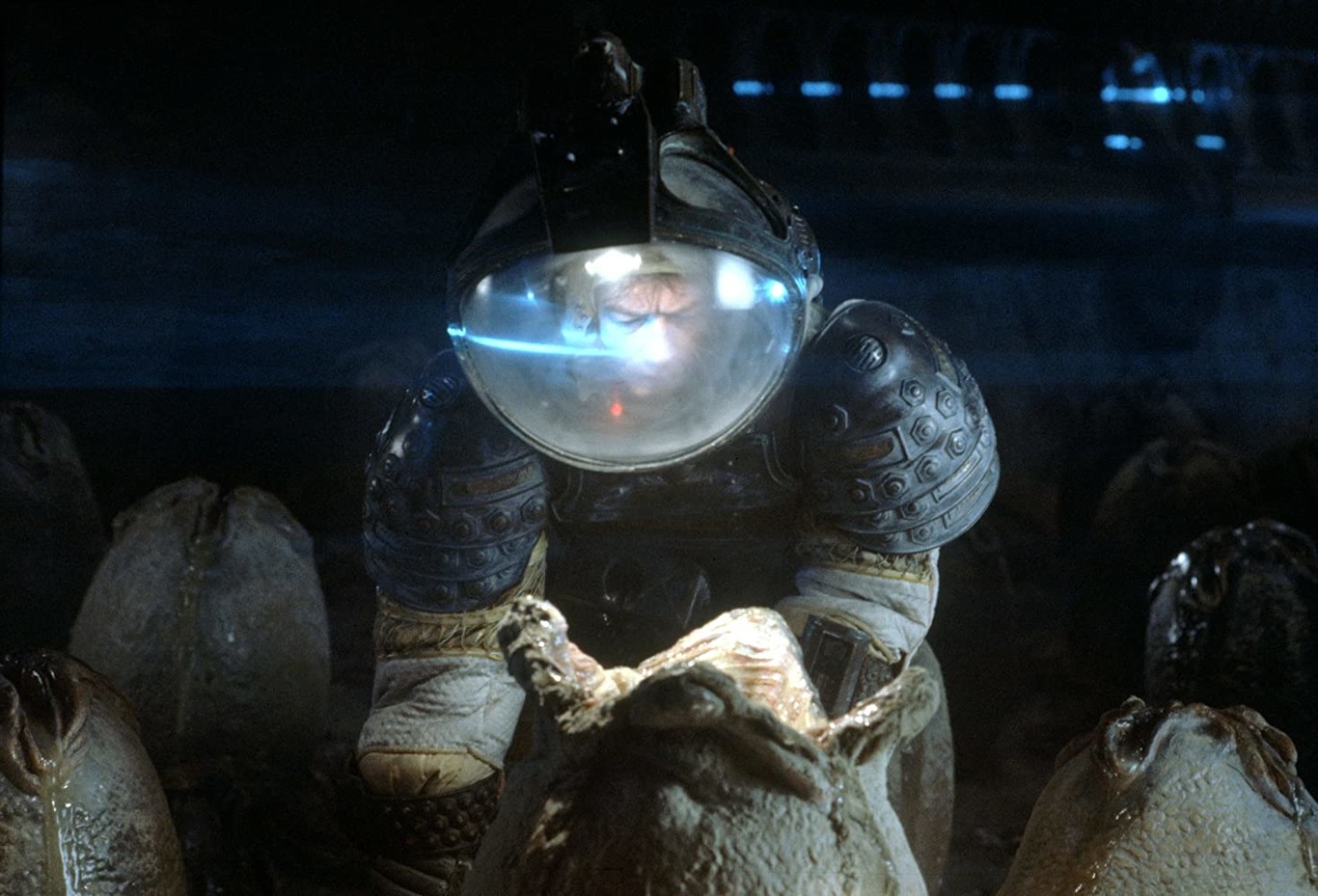
One of the absolute pinnacles of the mixture of horror and science fiction, masterful in both aspects. On the one hand, a lethal monster, with impossible biology and an insane reproductive cycle, designed by HR Giger. On the other hand, an iconic ship, the Nostromo, is manned by astronauts who are truck drivers who can’t stop talking about their pay. And halfway between both genres, a story of panic unleashed in a spaceship that is a haunted house, a synthetic but effective plot of evil corporations, seven perfect performances, and a handful of sequences (each of the murders, more the descent to the planet of nightmarish geography) which are absolute classics of terror in space. Simply perfect.
If you liked it, also try: Although the first is the best, each of the sequels has its personality, and even ‘Covenant’, which is undoubtedly the weakest of the series, also has its interest. From James Cameron’s iconic sequel, as famous as the original, to the misguided but fun ‘Prometheus’. Oh, and if you like mambo, the two clashes with Predator are tremendously fun pranks.
Where to see it: On Amazon Prime Video, Disney+ and HBO.
The Empire Strikes Back (1980)
The best film in George Lucas’s galactic saga is also the most adventurous and the most balanced. The soapy twists (romance between the princess and the smuggler! I am your father!) are more balanced and surprising than in any other film in the series, and the charisma of the original protagonists is at the boiling point. Lucas, who has never been a particularly gifted director, hands over the directing chair to Irvin Kershner, one of the best filmmakers who have ever worked on the series, and the result is, simply, the quintessence of the franchise.
If you liked it, also try: Of course, the rest of the series. There are better and worse ones (and the fans are the first to be unclear about this), but they are essential pieces to understanding the pop culture of the last four decades.
Where to see it: On Disney+ .
Blade Runner (1982)
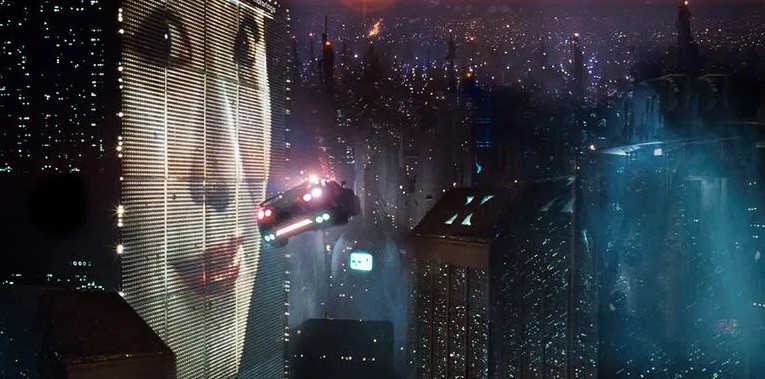
Perhaps not a perfect film, but a tremendously iconic one, perfectly representative of the ambition that the genre achieved in the late seventies and early eighties. His good taste in integrating film noir tropes and a very free interpretation of Philip K. Dick’s original resulted in a film that, thematically, in its disquisitions on AIs becoming aware of themselves, is today more current than never. Its rainy, apocalyptic city continues to impact current genre cinema, and the performances of its entire cast, but especially Rutger Hauer and Sean Young, are unforgettable.
If you liked it, also try: If you are interested in Philip K. Dick, you have a lot to discover, and in adaptations that are much more faithful to the author than this one: ‘ Total Challenge ‘, ‘ Minority Report ‘, ‘Cyber Killers’ or the animated one ‘A look into the darkness’ are some of them.
Where to see it: On Movistar+.
The Thing (1982)
A box office failure in its day that sent John Carpenter’s career directly to the B series never to come back from there, and a monumental horror and science fiction film, which takes a very inferior original from the fifties and turns his vulgar paranoia with political roots in an abstract and obsessive nightmare. Rob Bottin’s special effects, absolutely unsurpassed today, and the thick tension that is chewed in deservedly legendary scenes such as the blood test make this classic one of the best horror and science fiction films of all time, despite the height of ‘Alien’.
If you liked it, also try: The rest of Carpenter’s science fiction does not shine at the cosmic level of ‘The Thing’, but it is well worth a look: from the singular romanticism of ‘Starman’ to the hilarious ‘ Ghosts of Mars’, passing through the round ‘They’re Alive’ or the two trotter dystopias starring ‘Serpent’ Plissken.
Where to see it: On Filmin.
Tron (1982)
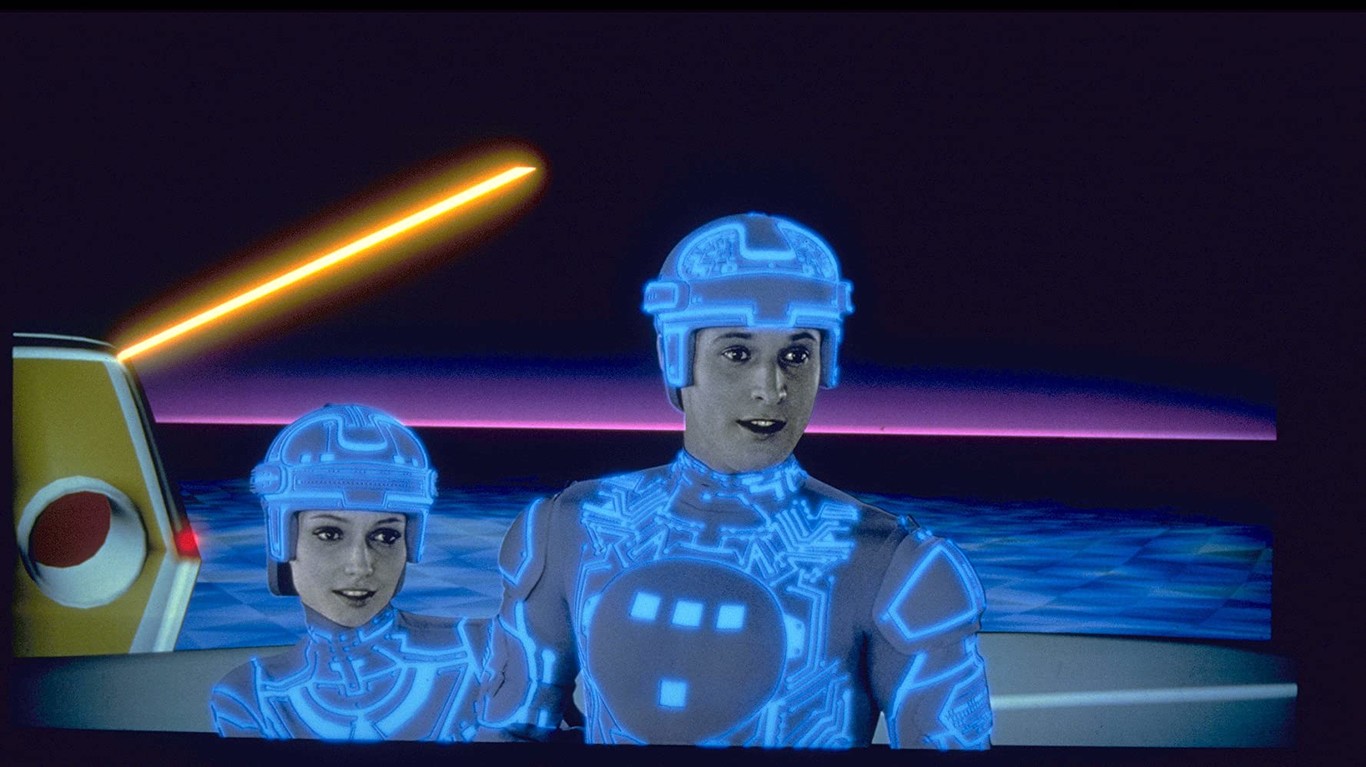
A narratively imperfect film, yes, but it is worth reclaiming the genre as a conjurer of images and concepts that you literally cannot find anywhere else. The idea of the programmer who dives into his own video game and faces an artificial intelligence that throws him into cybernetic gladiator combats finds the best expression in a fascinating aesthetic that comes out of nowhere, in a film that he was inventing in the middle of 1982. how to count according to what things. Pioneer of digital effects and a perfect symbol of the very strange Disney of the time, a rarity isolated in time and space.
If you liked it, also try: Nothing is like ‘Tron’, not even its sequel, ‘Tron Legacy’, a perfect example of how normalizing aesthetic dissent is not always the best idea. But if you want a taste of how crazy Disney was at that time, look at ‘The Black Abyss’, the impossible clash between ‘Solaris’, ‘20,000 Leagues Under the Sea’ and ‘Forbidden Planet’.
Where to see it: On Disney+.
Videodrome (1983)
Amazingly, a film so linked to the image and videography technology of its time (VHS, cable television, the pre-internet image) is so perfectly valid today, and it is thanks to the abstraction of its proposal and the universal and modern of what counts: the fall of a man in the networks of the perverse image, which causes him to transform even physically. Nothing to do with our current addiction to pocket screens and constant audiovisual stimuli. With devastating, very rare, and iconic special effects, David Cronenberg outlined a reflection on our dependence on the mediated image and proposed an intimate dystopia worthy of being revisited often.
If you liked it, also try: David Cronenberg is one of the latest great science fiction authors, and his filmography is full of essential pieces. From the viral viscerally of his first films, like ‘They Came from Within…’ or ‘Rage’ to the sophistication of recent pieces, like ‘Cosmópolis’. Although without a doubt his other great work of the genre, at the same time the most commercial and comparable to ‘Videodrome’, is ‘The Fly’. Oh, and ‘existentz’, a ‘Videodrome’ for the generation of those of us who have been breastfed by video games.
Where to see it: On Filmin.
Terminator (1984)
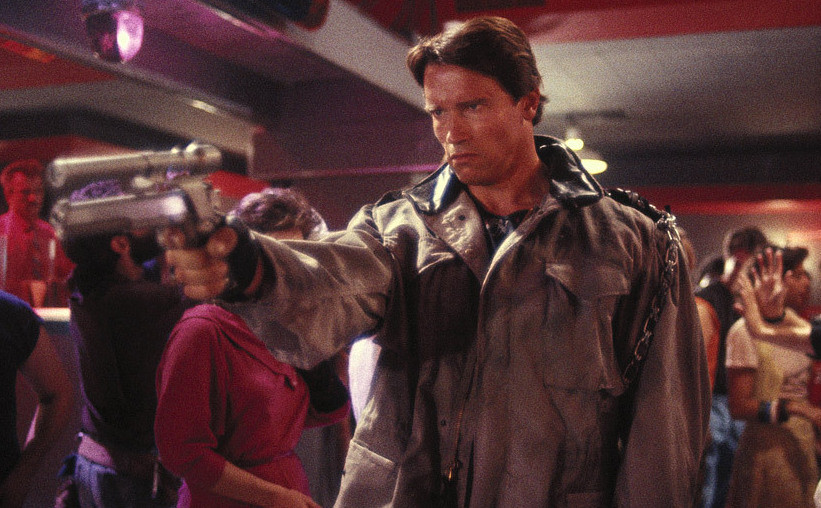
Within James Cameron’s science fiction work, there will be those who prefer ‘Avatar’, ‘Abyss’, or even the second ‘Terminator’. We are left with this concise and violent B series that is perfect, which draws on the classics (rebellion of the machines, paradoxes with time travel, chase structure from A to B) and makes up for its lack of means with overflowing imagination (the Terminator repairing itself, the systematic search for the right Sarah Connor, the terrifying exoskeleton). The purest demonstration is that science fiction is a genre of ideas… and ideas are free.
If you liked it, also try: The second part, of course, is perhaps a little noisy and arthritic, but full of good moments. And the third, of course, which recovers the shameless and B-series spirit of the first, but with a few million dollars at its service. And if you want to look at a Terminator plagiarism capable of measuring up to its height, go to ‘Hardware’ by Richard Stanley.
Where to see it: On Filmin.
Back to the Future (1985)
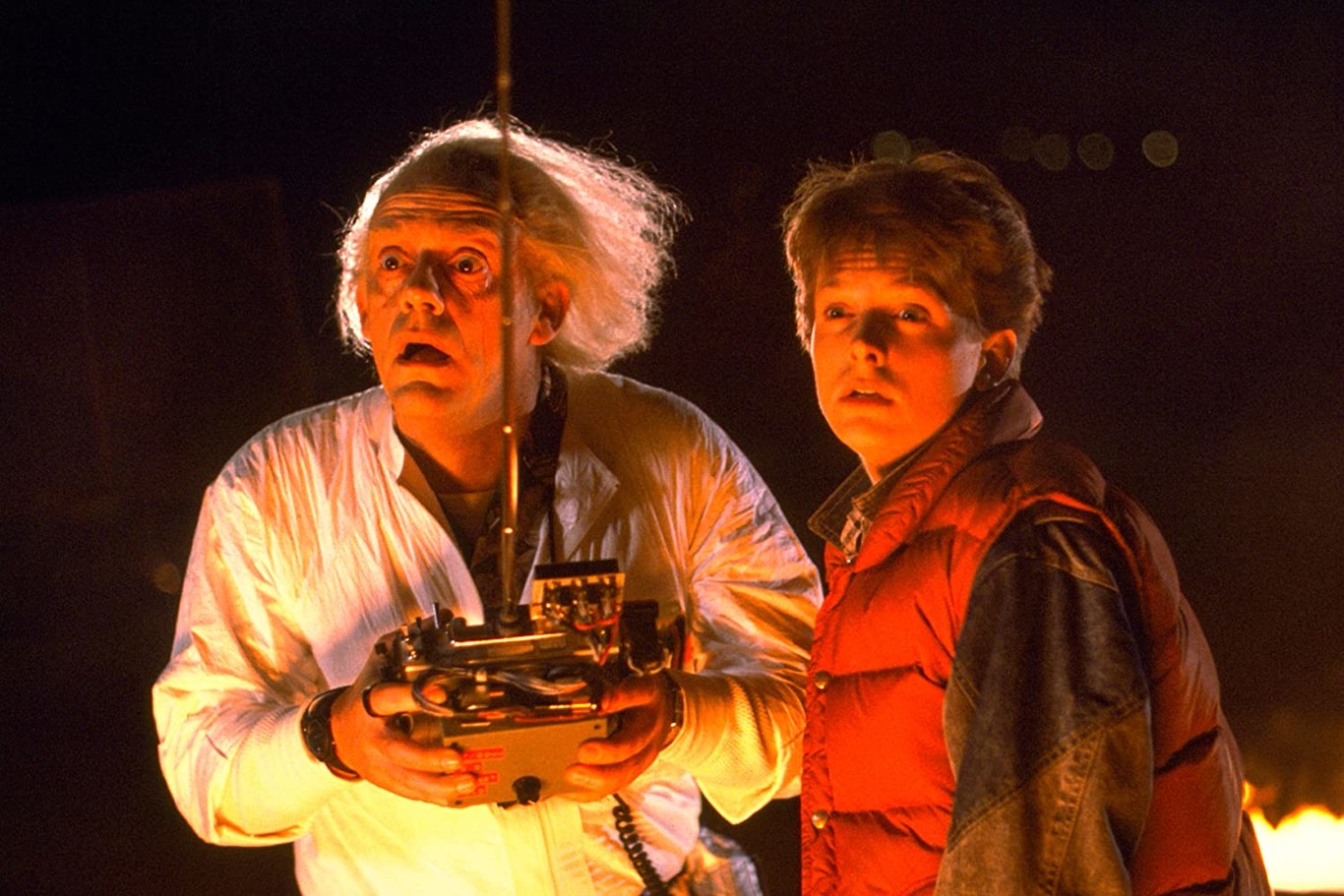
Not only an excellent sitcom and science fiction but also a perfect symbol of a very specific way of understanding mainstream cinema of the eighties, very commercial but very intelligent and with the then infallible stamp of Steven Spielberg. Like ‘Gremlins’, ‘Indiana Jones’ or ‘Who Framed Roger Rabbit?’, to name just a few out of dozens: solid, impeccable films, but also strange, with multiple edges and inconceivable in today’s monolithic industry. In this case, it starts from some classic themes (travel to the past so that your parents fall in love, a mix of the iconic tropes “travel to the past to kill Hitler” and “I am my grandfather”), but it is adorned with nuances of very intelligent script, magnetic and adorable characters and the almost psychotic meticulousness in Robert Zemeckis’ staging.
If you liked it, also try: Robert Zemeckis’s cinema is enough to frame from beginning to end, but if you are looking for science fiction, in a very different key to ‘Back to the Future’ but equally admirable you have ‘Contact’. And of course, the two sequels to Back to the Future itself, the first of them shining at the same level as the original.
Where to see it: On Amazon Prime Video, Netflix and HBO.
Robocop (1987)
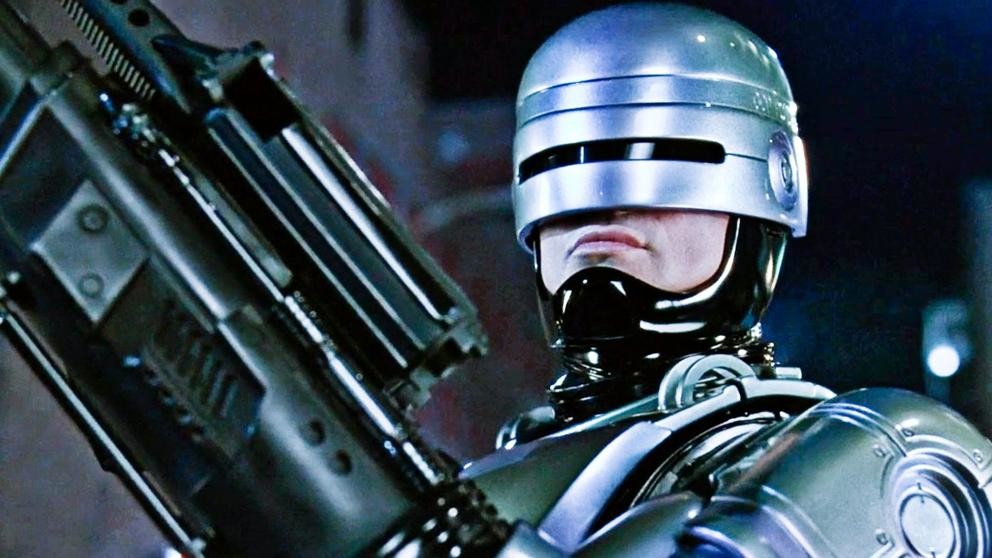
If you miss any superhero movie on this list, look no further: ‘Robocop’ is the definitive film of the genre, a perfect origin story that also offers much more: ultraviolence as only Verhoeven knows how to deliver it (and it’s hard to conceive how he got around all the censorship filters of the time) and satirical humor that uses its dystopian future to reflect on the terrifying United States of the eighties. Halfway between the comic perfectly self-aware of its ridiculousness and the psychodrama with the volume turned up to 11, ‘ Robocop ‘ is one of the strangest and most unclassifiable icons of the eighties, one incapable of aging.
If you liked it, also try The rest of Verhoeven’s science fiction, which makes up a trilogy full of humor and politically around anarchism: this ‘Robocop’ (by the way, his first sequel, with a script by Frank Miller, is inferior but very estimable), the unfading ‘Desafío Total’ and the increasingly visionary ‘Starship Troopers’.
Where to see it: On Amazon Prime Video, Filmin and Movistar+.
Akira (1988)
Despite its assumed imperfection (when it came out, the Otomo manga on which it is based had not yet concluded), a very important anime not only for its visual and thematic findings, but for its role as an ambassador of Japanese animation for adults in the eighties, and which led to the definitive landing of the genre after years in which the anime had been ‘Heidi’, ‘Mazinger Z’ and little else. Even today, the story of the friendship and rivalry between Kaneda and Tetsuo while Neo-Tokyo falls apart around them is as vibrant and iconic as it was in its day, and its action sequences, three decades later, continue to leave the viewer glued. to the seat.
If you liked it, also try: Something later but equally foundational (its influence on hits like ‘Matrix’ is indisputable), the anime ‘Ghost in the Shell’ is taken a step further in complexity with the story of a still future more twisted and labyrinthine than ‘Akira’.
Where to see it: On Filmin and Netflix.
They Are Alive (1988)
Making a lack of subtlety an absolute virtue, ‘ They’re Alive ‘ is an update of the paranoid philosophy of the genre in the 1950s as a critique of the atrocious Reaganite politics of the 1980s. The result is as compelling as the wonderful wrestling sequence in an alley that symbolizes the lack of shame in this John Carpenter movie. Its values have been revalued over the years, becoming a tireless supply of memes between sunglasses, black and white aliens, and chilling and sober ‘Obey’ posters.
If you liked it, also try: Paranoid science fiction with a message has always existed, with cases as disparate as the robotic comedy of ‘The Perfect Women’ or the suffocating paranoia of ‘The Invasion of the Ultrabodies’, including another film from the late eighties, perfect for a double bill with ‘They’re Alive’, as is ‘Society’. The trail continues to this day and is in very good health, as demonstrated by recent hits like ‘Déjame exit’.
Where to see it: On Filmin.
Twelve Monkeys (1995)
One of the best visions of the end of the world comes from this film which also functions as a piece of captivating romanticism (like the experimental medium-length film on which it is based, the fundamental ‘La Jetée’ by Chris Marker) and as a political manifesto about the end. of the species. That’s without ceasing to be an eminently Terry Gilliam film, with its criticism of bureaucracy and human stupidity and its loud, extravagant humor. It has some of the iconic images of the genre (animals invading the city, the mediocre and doomed future) and its relevance has been perfectly demonstrated in these strange times that we have had to live in.
If you liked it, also try The rest of Terry Gilliam’s science fiction cinema, from the best apocryphal adaptation of ‘1984’ ever filmed, the masterful ‘Brazil’, to the recent ‘Zero Theorem’, a marvel that deserves immediate vindication.
Where to see it: On Filmin, Netflix, HBO and Movistar+.
Gattaca (1997)
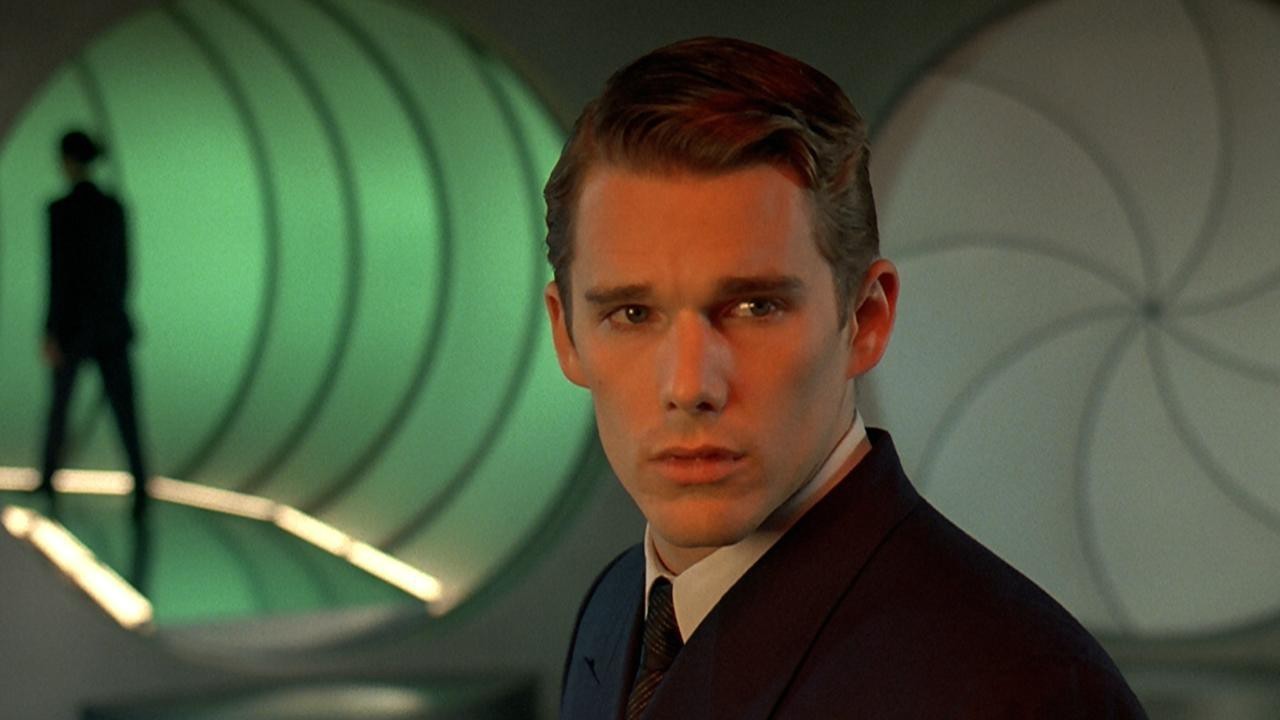
Asking if there is a chemical element that defines the human soul, ‘Gattaca’ was a couple of years ahead of the genre revolution that ‘The Matrix brought about, but its achievements are just as memorable. However this time, instead of dressing up in oriental action clothing, he did so with the film noir that worked so well for ‘Blade Runner’ and that would become slightly fashionable again thanks to films like The Great ‘Dark City’. An excellent leading trio and a script brimming with non-obvious details about eugenics, privacy, and the cult of appearances give rise to a film that is as relevant today as it was two decades ago.
If you liked it, also try: Andrew Niccol is a director to keep in mind and although he has touched all genres, his science fiction films are very suggestive, especially this one and the fabulous ‘The Truman Show’. The curious ‘Simone’ is not so brilliant, but the recent ‘Anon’ is, which went sadly unnoticed.
Where to see it: On Filmin.
The Matrix (1999)
Another film of million-dollar success and incalculable impact, which not only indelibly marked the aesthetics and themes of action cinema (and fantasy, and advertising, and comics, and music) of the beginning of this century. It is also a very risky production, which addresses themes that science fiction had only touched on in more literary forms, such as the possibility that all of reality is a computer construct. Everything in it is iconic, from the first shot to the last, but that does not mean that it is also a hilarious film, with brutal action sequences and constant discoveries, from the villain played by Hugo Weaving to his memorable love story.
If you liked it, also try: Of course, the rest of the saga, is not so well understood, but brimming with moments that can be measured with the best of the first part. Together they make up the most solid trilogy of modern science fiction, and if you want more you can turn to the rest of the Wachowski sisters’ films, often in the field of genre, and with films as stimulating as ‘Speed Racer’ ( not exactly science fiction, since it resembles absolutely nothing).
Where to see it: On Movistar+.
First (2004)
The pure intellectual challenge that ‘Primer’ proposes is no small feat: it is a film that plunges with all its consequences into the concept of time travel and makes up for its absolute lack of resources with a labyrinthine and difficult-to-follow proposal. but that compensates for its daring and the unusualness of its mere existence. The paradox of doubling when the past bifurcates injects elements of an existential thriller into this film by Shane Carruth whom we would have liked to continue getting to know through his films. Unfortunately, at the moment he has only given us this one and the equally ambitious ‘Upstream Color’
If you liked it, also try: Although less complicated, modern cinema has given us a few time travel films that are worth recovering: ‘Looper’ is perhaps the best of all, but also go to ‘The Chronocrimes’ and ‘Edge of Tomorrow’.
Where to see it: On Filmin .
Children of Men (2006)
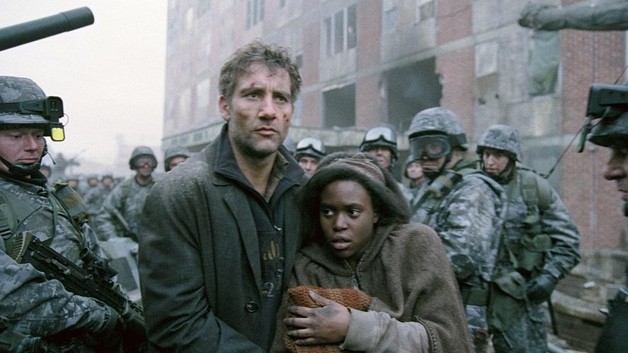
A pre-apocalyptic fiction that could take place the day after tomorrow and that, for the only time in Cuarón’s filmography, is technically dazzling (the famous sequence shot in the car has not been surpassed by its crazy exhibitionism in later films) without losing a single an iota of dramatic intensity. Possibly because along with these fireworks is added a splendid direction of actors and a taste for details (the refugee camps, the motivations of those who persecute the last pregnant woman) that make it one of the most disturbing dystopias of this century.
If you liked it, also try: Pessimistic and moderately realistic portraits of the near future have had a lot of buzz in recent years. Take a look at films like ‘The Road’, ‘Snowpiercer’, the Spanish ‘El Hoyo’ and, if you want more Cuarón, ‘Gravity’, much hollower, but equally visually brilliant.
Where to watch: On Rakuten TV .
Ex Machina (2014)
Alex Garland’s fascinating career in science fiction still peaks in his first film as a director, this reflection on what makes us human through one of the genre’s iconic tropes: the rogue AI. Sensational effects and performances in a film that is both a futuristic thriller and an intimate drama and that has a few subtleties in its use of point of view and its vision of technology as an extension of the unleashed ego of the men who convert it. into an instant classic of the genre.
If you liked it, also try: Alex Garland’s entire filmography is essential, both what he has directed (‘Ex Machina’, ‘Annihilation’ ‘Devs’) and what he has written (’28 Days Later, ‘Sunshine’ ‘, ‘Dredd). An author to follow very closely.
Where to watch: On Rakuten TV.
Mad Max: Fury Road (2015)
The best science fiction film of the decade we left behind? Quite possibly: the latest ‘Mad Max’ not only picks up the baton of the best action cinema of the seventies and eighties and reduces it to the essentials, to a stainless skeleton of insane stunts, heroes, and heroines in one piece, romances on top from any adversity and repulsive villains. It also proposes a different dystopia appropriate to the new times, far from the nihilism of a few years ago, where there is desolation but also hope thanks to characters as sensational as Imperator Furiosa.
If you liked it, also try: The original ‘Mad Max’ trilogy is the best dystopian action cinema you can put your face to. The whole thing is a real wrecking ball, but we have a special devotion for the first installment, synthetic, dry, and almost abstract.
Where to watch: On Rakuten TV.
Shin Godzilla (2016)
Choosing the best Godzilla movie is complicated since the nature of the franchise is mutant, like its own bug, and has changed over time. This is the first Japanese film about the radioactive saurian in 12 years, and it proposes a huge twist to everything that the monster supposed, which becomes a visually abject creature in a permanent state of digivolution, which the viewer observes between terrified and fascinated. as if he were seeing a thirty-story-tall Cronenberg movie monster. Seasoned with a feverish and very modern use of images and a vision of bureaucracy as the true invisible villain of history, ‘Shin Godzilla’ is a devastating update of the classic and a brutal revitalization of the kaiju eiga.
If you liked it, also try: You have to see as many Godzilla movies as possible, this is true, but you can start with the original black and white one from 1954, when the monster was an embodiment of Japanese atomic terrors; some from when he became a pop myth immersed in brutal battle royale of giant monsters, like ‘Alien Invasion’; and some from the eighties and nineties, with very sophisticated but still traditional effects and bombastic fights, like ‘Godzilla vs. Biollante’.
Where to see it: On Filmin and Amazon Prime Video.

Sharlene Meriel is an avid gamer with a knack for technology. He has been writing about the latest technologies for the past 5 years. His contribution in technology journalism has been noteworthy. He is also a day trader with interest in the Forex market.






